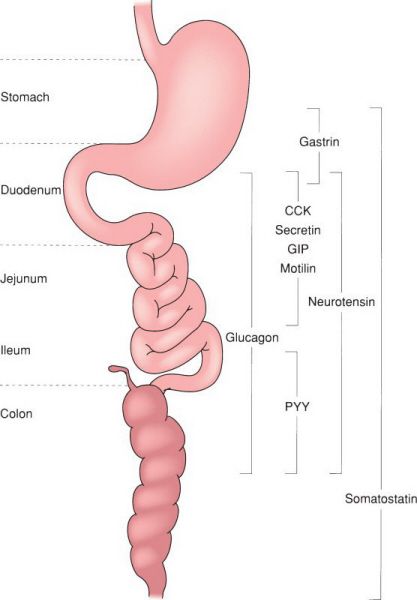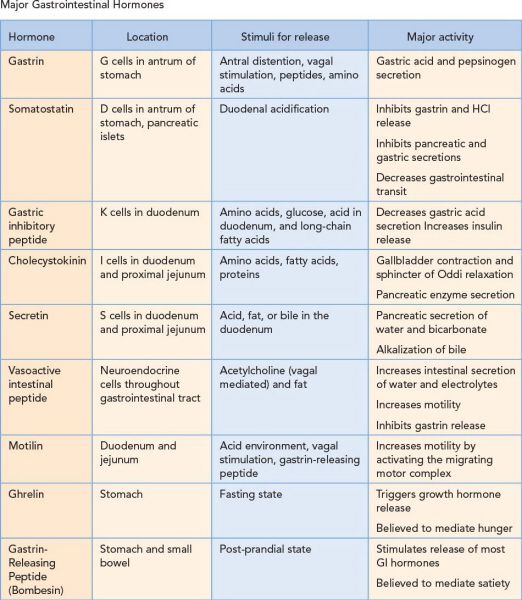MMC. (With permission from O’Leary JP, Tabuenca A, eds. Physiologic Basis of Surgery. 4th ed. Philadelphia, PA: Wolters Kluwer Health/Lippincott Williams & Wilkins; 2007.)
Motilin
•Plays a large role in the initiation and coordination of the MMC
•Likely coordinates lower esophageal sphincter, stomach, and small intestine motility
•Erythromycin and related antibiotics act as non-peptide motilin agonists by binding at the M1 receptor and can be used as promotility agents
•Motilin is secreted into the circulation during the interdigestive state at intervals of roughly approximately 1.5 hours
Where in the gastrointestinal tract is secretin produced?
Secretin is produced in the crypts of Lieberkuhn of S cells located in the duodenum and proximal jejunum. Secretin regulates the pH of the duodenal contents by controlling gastric acid secretion and pancreatic bicarbonate production and secretion.

Locations of GI hormone secretions. (With permission from Mulholland MW, Lillemoe KD, Doherty GM, Maier RV, Upchurch GR, eds. Greenfield’s Surgery. 4th ed. Philadelphia, PA: Lippincott Williams & Wilkins; 2005.)
Secretin
•Duodenal acidification stimulates release
•Activates bicarbonate-rich secretions from the pancreas, liver and duodenal Brunner glands, to neutralize gastric acid
•Inhibits antral G-cell–mediated gastrin release, thereby reducing gastric acid output
Paradoxically, in patients with gastrinoma, secretin stimulates gastrin release. This has led to the clinical application of secretin administration as a diagnostic maneuver for gastrinoma (Zollinger-Ellison syndrome). In patients who do not have a gastrinoma, secretin infusion will tend to decrease gastric acid secretion, whereas in patients with gastrinoma, secretin infusion increases gastric acid production.
Major Gastrointestinal Hormones

Stay updated, free articles. Join our Telegram channel

Full access? Get Clinical Tree


